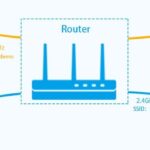Smart home technology can be overwhelming if you’re just getting started. There are many devices on the market, each with different features, protocols, and price points. But you don’t need to buy a lot or spend a fortune to get real value. The best smart devices for beginners are those that are easy to install, affordable, useful, and compatible with commonly used voice assistants or ecosystems (Alexa, Google Assistant, Apple HomeKit, etc.). Below are top device types and specific recommendations.
Smart Speakers / Voice Assistants
A smart speaker is often the best starting point. It acts as a hub or “voice control center” for other smart devices. You can ask for the weather, set alarms, stream music, and later use it to control lights, plugs, or locks.
Good picks: Amazon Echo Dot, Google Nest Mini.
Smart Light Bulbs
Smart bulbs are one of the simplest upgrades to make. Replace a regular bulb, set up an app, and you can dim, schedule, change color (if supported), or turn lights on/off with voice commands. Ideal for convenience and ambiance.
Good picks: Philips Hue Starter Kit, LIFX bulbs, Wyze smart bulbs.
Smart Plugs / Outlets
If you want to make devices you already own “smart” without replacing them, smart plugs are excellent. You plug them into wall outlets, then plug your device into the smart plug. From there, you can control the power via an app or voice, schedule times, or monitor energy usage.
Good picks: TP-Link Kasa Smart Plug, Wyze Plug.
Smart Thermostats
For beginners who are focused on comfort and saving energy, thermostats are a solid investment. Many smart thermostats learn your routine, allow remote control, and adjust temperature automatically to save on heating/cooling bills.
Good picks: Nest Learning Thermostat, Ecobee Smart Thermostat.
Smart Security Cameras / Doorbells
If security is a concern, adding a camera or video doorbell is one of the first upgrades to consider. Even simple models provide motion detection, alerts, and remote video feed. These give peace of mind and are often easy to install.
Good picks: Wyze Cam Pan, Ring Doorbell, Blink Mini.
What Makes These Devices Ideal for Beginners
-
Ease of setup: Plug-and-play devices or ones with simple apps.
-
Affordability: Low to mid-price range so mistakes or experimenting doesn’t cost too much.
-
Compatibility: Works with popular ecosystems like Alexa, Google Assistant, or Apple HomeKit so future expansion is easier.
-
Useful daily impact: It’s better to have a few devices you actually use regularly rather than many that sit idle.
How to Get Started Smartly
-
Start with one or two devices (e.g. a smart plug and a smart bulb) to understand the process.
-
Choose one ecosystem (Alexa, Google, HomeKit) to reduce complexity.
-
Think about Wi-Fi strength and coverage; smart devices need reliable network access.
-
Budget for small things like good Wi-Fi router, perhaps a hub or bridge if required.
-
Secure your smart home: use strong passwords, keep firmware updated.
Conclusion
If you’re new to smart home tech, begin with devices that offer the most benefit for the least hassle: smart speakers, bulbs, plugs, thermostat, or a camera. These tools help automate everyday tasks, strengthen your home’s comfort and security, and give you a foundation. Once you’re comfortable, you can expand step by step.
With the right picks, being a beginner doesn’t mean compromise—it just means choosing wisely.





